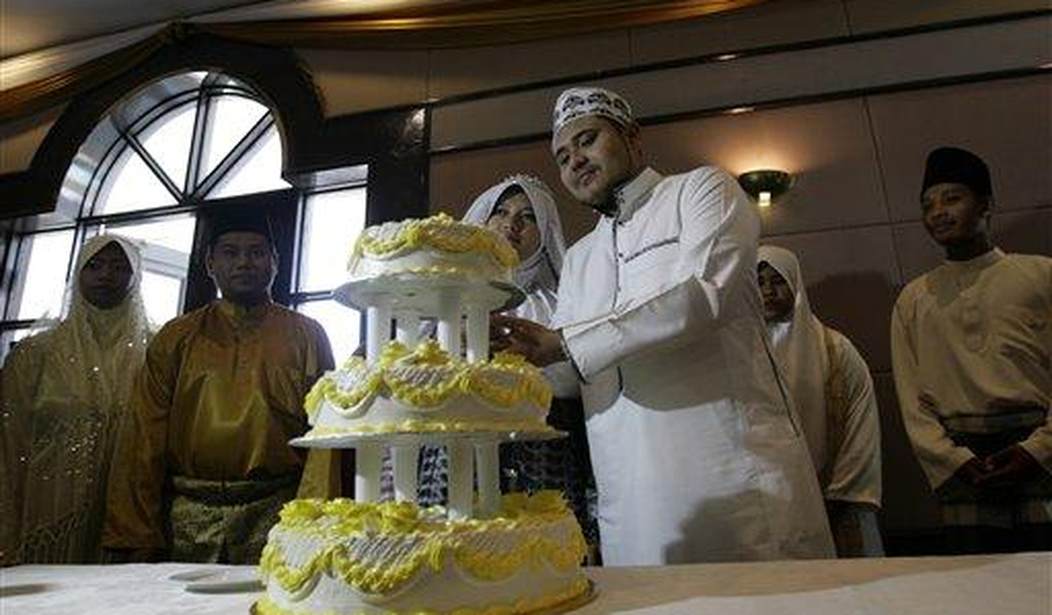At the beginning of the month, a rather “unusual” lawsuit was filed in a Manhattan federal court and it’s already creating quite a bit of controversy. The anonymous plaintiff in the case is a parent who is suing to overturn state and federal marriage laws forbidding incestuous weddings so they can marry their own adult child. (I should probably put a content warning on this for the easily offended.) The parent claims that the laws represent a burdensome infringement on personal freedoms and serve no purpose. This has led national and international “consensual incest advocates” (which are apparently a thing) to go to bat for the couple, hoping to overturn what they view as centuries of discrimination against people pursuing these sorts of relationships and hoping to see them decriminalized. (NY Post)
Consensual incest advocates are rooting for an anonymous New York parent who wants to marry their own adult child.
Australian Richard Morris, who is pushing to change incest laws in about 60 countries, said he supports the legal push in Manhattan Federal Court and that such behavior between consenting adults “should not be criminalized.”
He and other advocates have launched about 130 petitions, mostly on change.org, seeking to change incest laws around the world. Most have received little support.
“We haven’t moved any mountains yet,” he told The Post.
Just to get a couple of the obvious questions out of the way first, both the parent and the child are adults over the age of 18. Also, without providing any medical details, the parent bringing the suit claims that they are incapable of conceiving children together so there shouldn’t be any questions about the increased chance of birth defects in any offspring.
So what should we make of this request? Anyone who has followed my (admittedly unpopular) views on the entire gay marriage debate probably won’t be shocked to learn that I’m not exactly up in arms over this lawsuit. While I may personally find the idea of a parent marrying their own child to be very creepy and sort of nauseating, those reactions aren’t the proper basis for crafting legislation.
As I’ve written repeatedly during the gay marriage debates, I maintain that an actual small-government view of such questions should default toward the state keeping its nose out of personal matters whenever possible, provided there is no potential harm to other citizens. I find the idea that the government – at any level – can demand a permission slip from Big Brother (in the form of a license) and levy a tax (even if they call it a fee) before two people can hold a private ceremony before friends and relatives that affects not a single other person in the country to be a significant overreach of government power and control over the private actions of free people.
For that matter, there are any number of licenses and fees demanded by the government that seem stifling and overly restrictive. But I’ll leave those other issues for a column for another day.
While I never really delved into this specific question during the gay marriage debates, I’m forced to concede that the same arguments should apply here. There are already multiple states that permit marriages between first cousins, so even if you agree with such restrictions in concept, where do we draw the line? It’s true that the risk of birth defects among children born to cousins is slightly higher than that for unrelated parents. (Six percent versus three percent.) Among siblings, that chance shoots up to nearly 25%.
But is that truly a basis for passing a law banning the union? I would imagine that if any state attempted to pass a law preventing people from marrying someone with autism or a family history of Alzheimer’s, many of the people supporting a ban on incestuous marriages would be up in arms. But there’s clearly a parallel in terms of the risk of health problems for their progeny. I would suggest that the government’s proper role in such matters is to provide the best, most accurate medical information possible about any potential risks and allow couples to make up their own minds. And (as I said), while I find the idea of incestuous relationships personally offputting, it would be hypocritical of me to support such a ban.
Having debated this subject with other conservatives before, I can anticipate the next question you might ask. “So are there no limits? What about throuples and other “plural marriages?” After a lot of consideration, I’m forced to concede that even the bigamy laws in our country might need a fresh look, and for the same reasons. While I find the duties of caring for one wife exhausting at times (though more than worth it) and the idea of needing to care for two of them to be rather crazy, is it really any of my business if three people wanted to form a permanent union? We happen to have been friends with one family composed of one husband and two women (though only one of them was legally married to him) who were together for decades until one of the “wives” passed away a few years ago. It’s clearly possible to do for those who are cut out for it. How is it the government’s business provided they aren’t endangering anyone or engaging in other illegal activity?
Everyone is welcome to break out the rotten tomatoes and start hurling them at me now. I understand these are unpopular takes in conservative circles. But if you claim to believe in less government interference in the private lives of free citizens, I would suggest that these ideas are at least worth considering.








